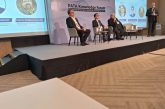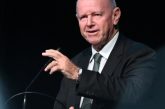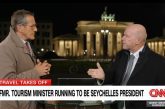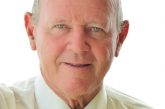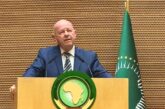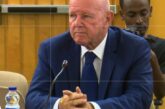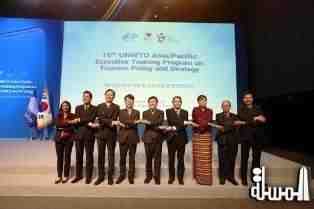
aTP- Arab tourism portal- Under the title ‘Human Capital Development in Tourism’, the UNWTO Asia/Pacific Executive Training Programme on Tourism Policy and Strategy has gathered policy makers and tourism executives in Seoul, Republic of Korea, to enhance skills and understanding on the latest trends in tourism management. The initiative, organized by UNWTO and sponsored by the Ministry of Culture, Sports and Tourism of the Republic of Korea, has reached a decade in this last edition, as the first Training Programme on Tourism Policy and Strategy in the Asia/Pacific region launched in 2006.
Group discussions, case studies and a series of lectures integrated the 4-day training programme aimed at building skills for public sector executives in tourism policy. The 52 participants coming from 21 different countries in Asia and the Pacific also had the opportunity to share their experiences and best practices in fields such as tourism strategic planning and implementation.

The topic for this year programme, ‘Human Capital Development in Tourism’, responds to the growing need of destinations in Asia and in the Pacific to enhance the quality of services, develop and retain human resources and improve the skills of tourism professionals as the sector gains increased relevance in the region.
“UNWTO has a strong commitment to talent development and capacity building. This training programme is probably one of the best examples of the efforts of the Organization in this field”, said UNWTO Secretary General, Taleb Rifai, opening the event.
“This is also a perfect example of how countries such as the Republic of Korea can contribute to tourism development. We are very thankful to the Ministry of Culture, Sports and Tourism for the longstanding support provided to this programme.
We have run this programme for a decade now, and the support that the Republic of Korea has given us has contributed greatly to its success, making a real difference to the many countries from around the world that throughout this decade have joined the programme” he added.


